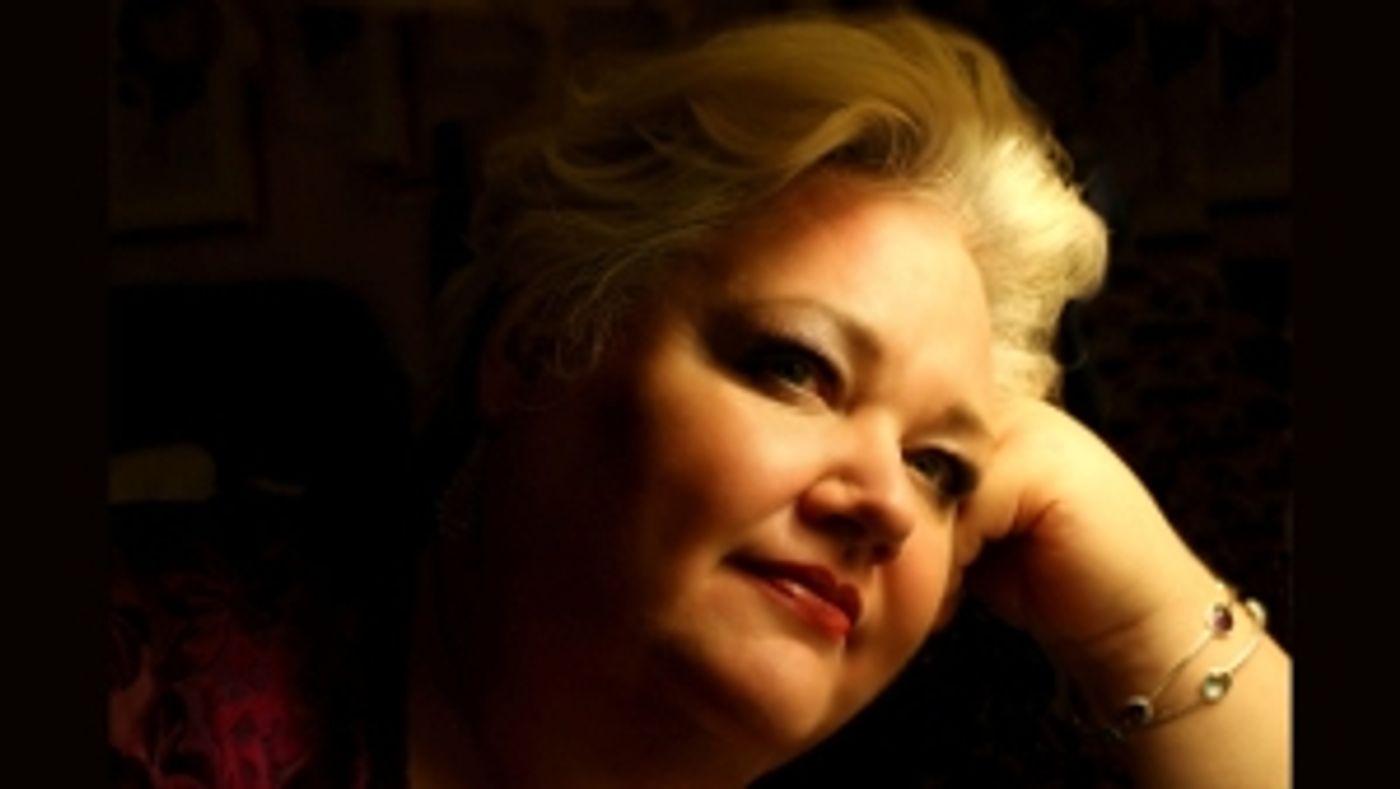Interview: Stephanie Blythe of SAN DIEGO OPERA'S PUCCINI DUO at The San Diego Civic Theater
Mezzo-Soprano Stephanie Blythe Sings Baritone in San Diego Opera's Puccini Duo

Part 2 of 3
Stephanie Blythe's dad had no use for singers. "He liked my voice, but I wasn't allowed to sing in the chorus. So all through junior high I wanted to be part of a rock band with my three best friends. But since we played euphonium, trombone, saxophone and flute, I was like, well, that's not going to work. We formed a barbershop quartet instead. And that was the singing I did in junior high. When I got into high school, my choral conductor Martin Banner insisted that I join the chorus and called my father to change his mind about that. Thank God for Martin Banner. Joining the chorus has led to everything for me.
"I came to the actual idea of wanting to be an opera singer relatively late. I was about 21. I'd waffled around in college for six years and gotten two bachelor's degrees, the first in English. Then I thought what next? Might as well finish my music degree. I was very fortunate in having a wonderful voice teacher, Patricia Misslin, who told me 'I think you can have a career of singing.'" Again, dad wasn't in favor. This time a voice teacher's phone call changed his mind.
Blythe's professional career began soon after with a minor offstage role in a Met production of Parsifal. A whirlwind of favorable reviews and success followed, but at times felt overwhelming. "No wonder I started having anxiety attacks. They started my second year in the young artists program at the Met." She managed it on her own for about a year. The intensity of the attacks and a few trips to an emergency room convinced her she needed help. It took seven years of therapy and self-examination before the attacks were under control.
Fortunately, her level of stage fright during that time and since has never been greater than most artists feel before a performance. "You'll find a handful that are just total animals, and don't experience it. I do, but I enjoy being on the stage. I'm usually sitting offstage waiting to go 20-to-30 minutes before anyone else. First, because I can't wait to go, and second, it's a way I psych myself up. It takes a lot to get up in front of a load of people and tell a story. But I've never wanted to do anything else even if it is terrifying."
Terrifying, but sometimes immensely satisfying. A peak moment came almost a decade after her debut. "I realized I was really an opera singer while I was in Covent Garden sitting in front of the fire curtain having a promo rehearsal with the orchestra. I was singing as a trainer in this incredible theater and I thought, holy crap, you're actually doing it. I had been for quite a while, but it wasn't until that moment that it just kind of washed over me like a huge wave. I'll never forget that feeling, never."
Are there moments she would rather forget? "Nope. Because I'm grateful for every single thing I've ever done, even the things that weren't as successful. Every moment I've ever had on the stage has informed the next moment. Blythely Oratonio is all about transitions, about turning 50 and how life is going now. It's autobiographical, and how fortunate I feel to have been able to take that journey with an incredible group of artists who held up a mirror to me that brought new and interesting ideas."
Though Blythe has won several prestigious awards as an opera singer and her operatic repertoire is huge, she grew up with a jazz-musician father and also loves pop music.
Sammy Davis, Jr. is a favorite. "I listen to his 'Love Me or Leave Me,' almost every day. So much energy and rhythm. He was a total entertainer, and that's all I've ever wanted to be. I'd love to do more Broadway if I could dance."
Kate Smith is another favorite. "I started getting into the Great American Songbook when I wrote the show about Kate Smith. As I was working on it and learning about that music, I became interested in the lyricists and composers of the period." She learned that many popular songs had been written on the ukulele. It's easy to play and portable. On opening night her accompanist Craig Terry gave her a soprano uke. "I didn't know what to do with it. I thought, these fingers can't play a soprano ukulele. It sat for about four years. Then I decided I'd get the larger tenor, which is much easier to play. After I learned three or four songs, I was hooked and have 13 or 14 ukuleles today."
A number of those are made by Lanikai. The company noticed she was using one in her shows, and asked if she would represent them. And she now does.
In part 3, my conversation with Stephanie Bythe concludes with her thoughts on the future of opera and her upcoming appearance in San Diego Opera's staging of Suor Angelica. and Gianni Schicchi.
For times and ticket information visit the company's website.
Part 1 of this interview is available here.
Videos

